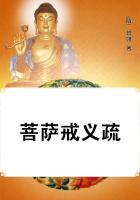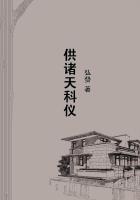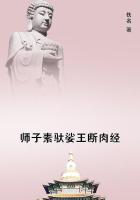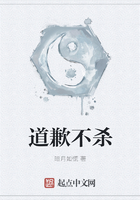This clock represented the twelve Hours, charmingly personified by twelve female figures whirling round in so mad and swift a dance that three little Loves perched on a pile of fruit and flowers could not stop one of them; only the torn skirts of Midnight remained in the hand of the most daring cherub. The group stood on an admirably treated base, ornamented with grotesque beasts. The hours were told by a monstrous mouth that opened to yawn, and each Hour bore some ingeniously appropriate symbol characteristic of the various occupations of the day.
It is now easy to understand the extraordinary attachment of Mademoiselle Fischer for her Livonian; she wanted him to be happy, and she saw him pining, fading away in his attic. The causes of this wretched state of affairs may be easily imagined. The peasant woman watched this son of the North with the affection of a mother, with the jealousy of a wife, and the spirit of a dragon; hence she managed to put every kind of folly or dissipation out of his power by leaving him destitute of money. She longed to keep her victim and companion for herself alone, well conducted perforce, and she had no conception of the cruelty of this senseless wish, since she, for her own part, was accustomed to every privation. She loved Steinbock well enough not to marry him, and too much to give him up to any other woman; she could not resign herself to be no more than a mother to him, though she saw that she was mad to think of playing the other part.
These contradictions, this ferocious jealousy, and the joy of having a man to herself, all agitated her old maid's heart beyond measure.
Really in love as she had been for four years, she cherished the foolish hope of prolonging this impossible and aimless way of life in which her persistence would only be the ruin of the man she thought of as her child. This contest between her instincts and her reason made her unjust and tyrannical. She wreaked on the young man her vengeance for her own lot in being neither young, rich, nor handsome; then, after each fit of rage, recognizing herself wrong, she stooped to unlimited humility, infinite tenderness. She never could sacrifice to her idol till she had asserted her power by blows of the axe. In fact, it was the converse of Shakespeare's /Tempest/--Caliban ruling Ariel and Prospero.
As to the poor youth himself, high-minded, meditative, and inclined to be lazy, the desert that his protectress made in his soul might be seen in his eyes, as in those of a caged lion. The penal servitude forced on him by Lisbeth did not fulfil the cravings of his heart. His weariness became a physical malady, and he was dying without daring to ask, or knowing where to procure, the price of some little necessary dissipation. On some days of special energy, when a feeling of utter ill-luck added to his exasperation, he would look at Lisbeth as a thirsty traveler on a sandy shore must look at the bitter sea-water.
These harsh fruits of indigence, and this isolation in the midst of Paris, Lisbeth relished with delight. And besides, she foresaw that the first passion would rob her of her slave. Sometimes she even blamed herself because her own tyranny and reproaches had compelled the poetic youth to become so great an artist of delicate work, and she had thus given him the means of casting her off.
On the day after, these three lives, so differently but so utterly wretched--that of a mother in despair, that of the Marneffe household, and that of the unhappy exile--were all to be influenced by Hortense's guileless passion, and by the strange outcome of the Baron's luckless passion for Josepha.
Just as Hulot was going into the opera-house, he was stopped by the darkened appearance of the building and of the Rue le Peletier, where there were no gendarmes, no lights, no theatre-servants, no barrier to regulate the crowd. He looked up at the announcement-board, and beheld a strip of white paper, on which was printed the solemn notice:
"CLOSED ON ACCOUNT OF ILLNESS."
He rushed off to Josepha's lodgings in the Rue Chauchat; for, like all the singers, she lived close at hand.
"Whom do you want, sir?" asked the porter, to the Baron's great astonishment.
"Have you forgotten me?" said Hulot, much puzzled.
"On the contrary, sir, it is because I have the honor to remember you that I ask you, Where are you going?"
A mortal chill fell upon the Baron.
"What has happened?" he asked.
"If you go up to Mademoiselle Mirah's rooms, Monsieur le Baron, you will find Mademoiselle Heloise Brisetout there--and Monsieur Bixiou, Monsieur Leon de Lora, Monsieur Lousteau, Monsieur de Vernisset, Monsieur Stidmann; and ladies smelling of patchouli--holding a housewarming."
"Then, where--where is----?"
"Mademoiselle Mirah?--I don't know that I ought to tell you."
The Baron slipped two five-franc pieces into the porter's hand.
"Well, she is now in the Rue de la Ville l'Eveque, in a fine house, given to her, they say, by the Duc d'Herouville," replied the man in a whisper.
Having ascertained the number of the house, Monsieur Hulot called a /milord/ and drove to one of those pretty modern houses with double doors, where everything, from the gaslight at the entrance, proclaims luxury.
The Baron, in his blue cloth coat, white neckcloth, nankeen trousers, patent leather boots, and stiffly starched shirt-frill, was supposed to be a guest, though a late arrival, by the janitor of this new Eden.
His alacrity of manner and quick step justified this opinion.
The porter rang a bell, and a footman appeared in the hall. This man, as new as the house, admitted the visitor, who said to him in an imperious tone, and with a lordly gesture:
"Take in this card to Mademoiselle Josepha."
The victim mechanically looked round the room in which he found himself--an anteroom full of choice flowers and of furniture that must have cost twenty thousand francs. The servant, on his return, begged monsieur to wait in the drawing-room till the company came to their coffee.















